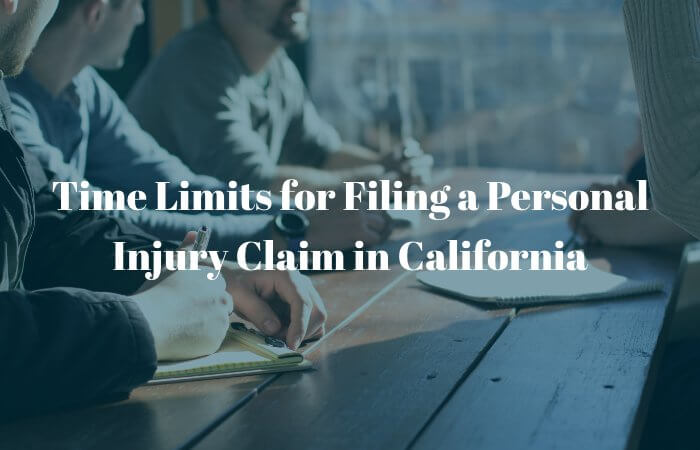Like all states, California courts place a limit on the amount of time an injury victim has to file a lawsuit against the party responsible for their injury. This limit serves two important purposes, to ensure that evidence remains available and eyewitness testimony reliable when a case goes to court, and to protect defendants against the long-term threat of lawsuits.
Most injury victims in California wish to recover compensation for their damages like medical expenses, lost wages, and pain and suffering soon after their accident. Injury victims sometimes wonder why anyone would wait long enough to file a claim to worry about the statute of limitations expiring on their case, but this stems from a common misconception confusing an injury claim against an at-fault party’s insurance company with a lawsuit.
If you’ve been injured in California, the Encino personal injury lawyers emphasize the importance of understanding how the state’s statute of limitations affects your case.

California has a two-year statute of limitations on personal injury lawsuits. This is the most common time limit for this type of legal action across the U.S., though several states have longer limits of three or even five years. This doesn’t mean that an injury victim should wait to file a claim. A personal injury claim and a lawsuit are not the same. Most types of personal injury costs in California are covered by the at-fault party’s insurance. For instance, car insurance after an accident or premises liability insurance after a slip-and-fall injury in a store. The best time to file a claim is shortly after the injury occurs but not so soon that the victim doesn’t know the full extent of the damages they’re facing. Then an investigation period takes place followed by what could be months of negotiations for an acceptable settlement offer. About 95% of personal injury claims in California result in an out-of-court settlement, but if the insurance company denies the claim or fails to offer an acceptable settlement, injury victims have the option to go to court with a lawsuit. The injury victim must file a personal injury lawsuit within two years of the date of the injury or the court will toss out the case and the victim may no longer sue for compensatory damages.
According to California Code of Civil Procedure §335.1:
“ The Time of Commencing Actions Other Than for the Recovery of Real Property … is
Within two years: An action for assault, battery, or injury to, or for the death of, an individual caused by the wrongful act or neglect of another.”
The two-year time limit on personal injury claims in California is only extended—or “tolled”—under specific circumstances, including the following:
In addition, the statute of limitations for medical malpractice lawsuits varies from other types of personal injury cases in California. Malpractice injury victims have up to three years from the date the malpractice occurs to file a claim.